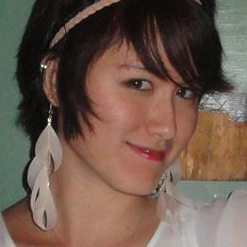
Part 1 of Walking the Path of a Peacemaker shows how David’s sincere heart of service helped move the hearts of the villagers in Karukutty, India. In Part 2, we follow how the inspiration David found in India served as a springboard for organizing RYS in his hometown of Birmingham and his eventual return to India where he gained recognition as an Honorary Citizen. A true story by John W. Gehring
Throughout his stay in India, David continued to work and mingle with the Religious Youth Service (RYS) participants and the local residents of Karukutty. The daily joys and challenges that he found in work and conversations, and through the cultural exchanges, incited in his spirit a desire to recreate the RYS experience in his hometown. This desire became a priority when he returned to Birmingham.
Creating a Birmingham Success
The city of Birmingham, England has been a magnet for attracting people from a wide variety of cultures and religions. For decades, concerned citizens among the heterogeneous population have worked to improve person-to-person, cross-cultural understanding and cooperation.
David and his wife Patricia were among those who periodically participated in programs aimed at promoting harmony. After returning from India, the couple began to host several interfaith events that quite naturally led to considering Birmingham as the host for an RYS project. For an interreligious service project to work well, David realized it was essential to involve a wide cross section of religions. These meetings were in part an effort to build such a coalition.
While spirituality and religion seem omnipresent in India, in England many conscientious adults simply did not affiliate with or relate well to any religion. David wanted to reach “believers” but also wanted to attract open-minded youth—those willing to learn about religion and support cross-cultural cooperation. Ordinarily, it is a challenge just to pull diverse faith communities together but adding to the mix nonreligious communities was even more adventurous. Successful cooperation within such radical diversity requires definitively affirming a shared vision as well as a genuine commitment to serve. Developing approaches that could inspire individuals and organizations to contribute to this vision would be crucial to secure the project’s success.
 David communicated his plans to organize the RYS project in Birmingham with Marshall D’Souza, the RYS Director in Great Britain. Marshall immediately acted to promote the program by recruiting international participants and staff, along with London-based college students. David and Patricia successfully created a coalition of support among local civic, religious and government organizations. This coalition proved instrumental in designing and helping to implement creative service projects. The interfaith circle of friends contributed to building a religiously diverse base of support. Step by step, the foundation was laid to be able to constructively implement back-to-back, successful international RYS projects in Birmingham.
David communicated his plans to organize the RYS project in Birmingham with Marshall D’Souza, the RYS Director in Great Britain. Marshall immediately acted to promote the program by recruiting international participants and staff, along with London-based college students. David and Patricia successfully created a coalition of support among local civic, religious and government organizations. This coalition proved instrumental in designing and helping to implement creative service projects. The interfaith circle of friends contributed to building a religiously diverse base of support. Step by step, the foundation was laid to be able to constructively implement back-to-back, successful international RYS projects in Birmingham.
The Birmingham RYS projects attracted volunteers from Europe, Africa, Asia and the Americas. The initial Birmingham project focused on serving youth in a poor area of the city. In the following year, a second project involved a partnership with a local environmental group and the city council to improve a park that was adjacent to an inner-city housing project. Both programs provided a visible model of successful community development and cross-cultural cooperation.
The Return to India
Having accomplished his dream of bringing RYS to Birmingham, David set his sights on going back to India. This time he was preparing to offer much more than his physical labor.
At a local interfaith meeting, David asked an Indian-born Birmingham resident if he knew of a good project in India that could possibly use his help. His friend took this as a timely opportunity to introduce David to a visiting Christian minister who otherwise lived in Hyderabad, India and was very concerned with the needs of orphans living in that area. After a warm, animated conversation, David received an invitation to witness firsthand the minister’s work with orphans. David sensed that something good could develop from this invitation, so he accepted the offer.
In life, success often favors the person who has a big dream and the humility to face problems from different perspectives. David had a big dream that was reinforced by his faith and this gave him a sense of freedom to explore issues from fresh and varied perspectives. He soon found himself packing his bags with a creative sense of anticipation as he again set out on a journey to India.
Breeding Ground for Riots
The sweltering crowded city streets of Hyderabad, India were the scene of periodic bloody riots between Hindus and Muslims. A relatively small incident could be easily inflamed by rumors because people are often more interested in rumors than they are in trying to understand the truth. Incidents of violence here could transform a once-friendly neighbor into a predator. Victims of riots included men and women of all ages. Every real or perceived threat could become an excuse for doing the inexcusable.
The incendiary conditions of Hyderabad were compounded by its layers of poverty. Crowded buildings, heat waves that could reach 50 degrees centigrade, massive illiteracy and an atmosphere of pervasive suspicion could take hold of a neighborhood. Any incident large or small could provide the spark that would trigger a cycle of violence and retaliation. It was through what he learned in this city that David’s next inspiration took shape.
Soon after arriving in Hyderabad, David went to meet with the Christian minister he had been briefly introduced to. The minister informed David about the needs and the potential that existed within the community. After discussing different project ideas, they agreed that the best way to help was to support a well-run orphanage. How to support such an orphanage was a real challenge, since no orphanage existed in the area.
David’s mind was actively churning up creative ideas on ways to respond to the need and the challenges they were facing. After some time had passed, he offered a suggestion, “How about creating an interfaith orphanage? The orphanage could raise children in the religious tradition of their parents but provide an environment of interreligious sharing as part of the children’s daily life.” David’s suggestion was not what the Christian minister was initially hoping for but it was something that the minister could support.
With his energy focused, David began working on his new plan. He started to set up networks of cooperation in India and Great Britain that linked people and resources. Step by step, he moved forward on the project’s development. When the grounds for the orphanage were donated and the construction had begun, planning advanced to a higher and more substantial level. Brick by brick, day by day, their labors patiently carried them forward.
 In December 1998, the RYS lent support to David’s vision. An RYS team of international volunteers joined the work in the rural setting where the orphanage was being constructed. The religiously and culturally diverse team jumped into the work at the construction site, contributing building materials together with their helping hands. The cooperative efforts of the team served to solidify the interfaith foundation of the orphanage. David’s dream was steadily becoming a shared dream.
In December 1998, the RYS lent support to David’s vision. An RYS team of international volunteers joined the work in the rural setting where the orphanage was being constructed. The religiously and culturally diverse team jumped into the work at the construction site, contributing building materials together with their helping hands. The cooperative efforts of the team served to solidify the interfaith foundation of the orphanage. David’s dream was steadily becoming a shared dream.
In the following year, the newly-staffed interfaith orphanage began receiving children from the neighborhoods of Hyderabad. Additional children continued to be received, month after month, year after year. Young children found themselves welcomed into an environment of wonderful hospitality, where they were raised in the faith of their parents and treated as a valued member of a larger extended family.
While at the orphanage, the children attended school and learned a variety of academic and technical skills. One irreplaceable lesson each child learned through his or her experience at the orphanage was how to live and share with children of different religions. The deep friendship and profound bonding experience they shared would serve them well when it was time to return to their neighborhoods.
The Fruit of Loving Kindness
The city of Hyderabad has become kinder in the past decade. Organizations like the Henry Martyn Institute and other dedicate caregivers have actively worked at building trust and cooperation between the Hindu, Muslim and smaller Christian communities. Many programs have helped provide economic empowerment for the disenfranchised.The Interfaith Orphanage that lies outside the busy city streets of Hyderabad has also played a role in improving community relationships.
For years, children who could have easily grown up with anger in their hearts and stones in hostile hands were met with support and kindness at the Interfaith Orphanage. Instead of adding to the local religious tension, the orphanage served instead as a model exhibiting the great benefits of religious cooperation. In this spirit, the orphans’ cooperation fostered an awareness of the loving bond that can exist between each of us, one that is beyond religion because it originates at the source of all religions, in the Parental Heart of God.
You are an Honorary Citizen of India
We are linked in some deep inexorable way to our history, which is like a shadow that tags along uninvited. David, who came from England, wanted his legacy to India to be a legacy of service. David had a resolute belief that the power of selfless service could facilitate genuine healing and reconciliation. In time, David’s work in India received special acknowledgement from the government of India. On account of his sincere efforts and accomplishments, David was recognized as an “Honorary Citizen of India.”
A legacy of service can transcend national, religious and cultural barriers. The path to becoming a peacemaker is intrinsically linked to our willingness to serve others. It is not power, or knowledge, or wealth that will pull us together as one family under God. It is only through love, love exemplified in service, that we finally become the Human Family, able to live in the peace that is beyond all understanding.












